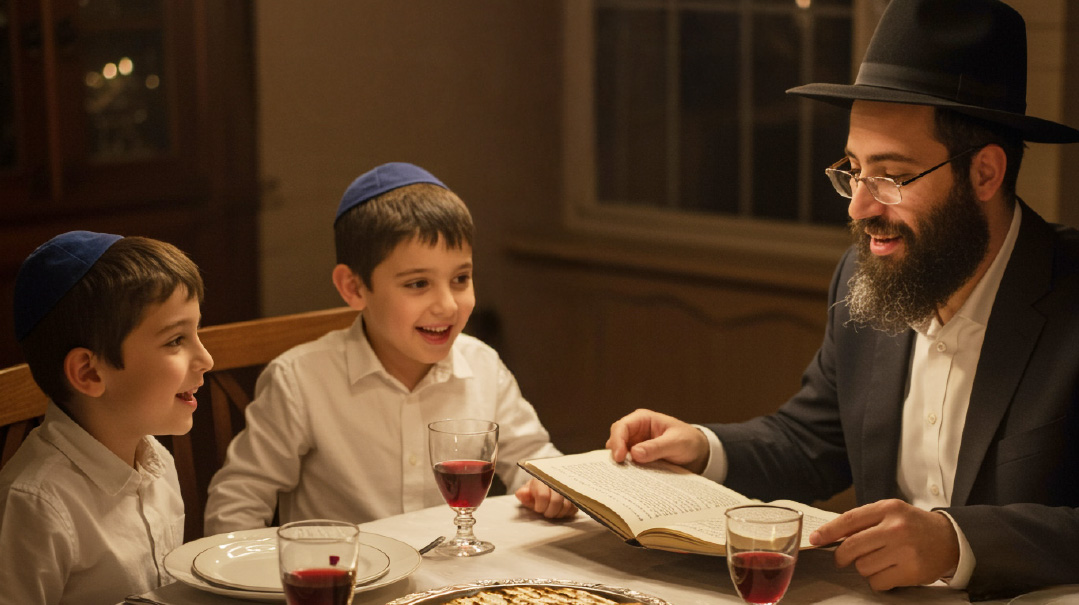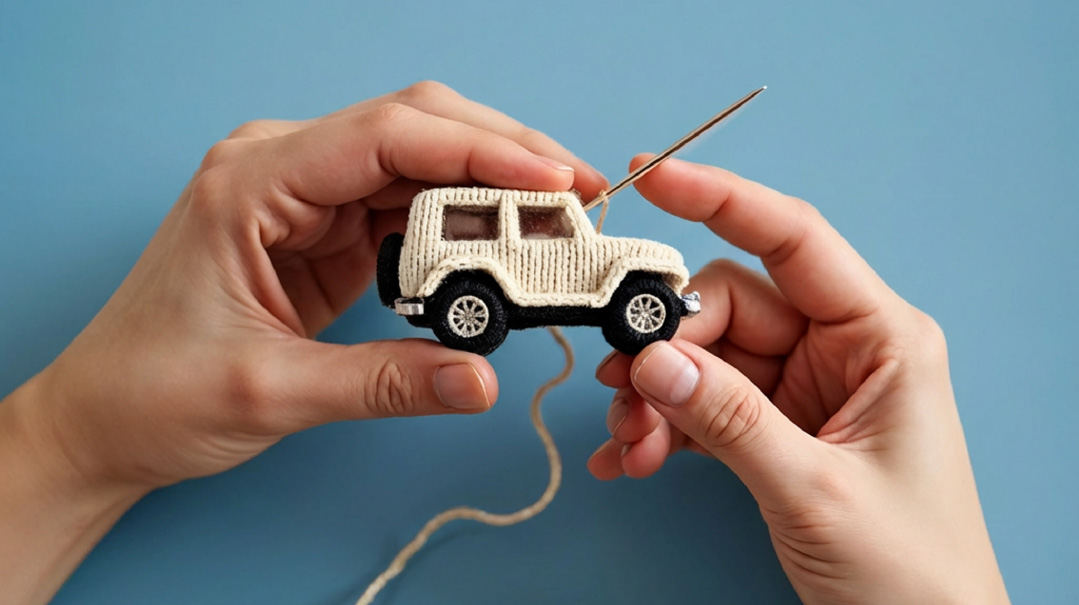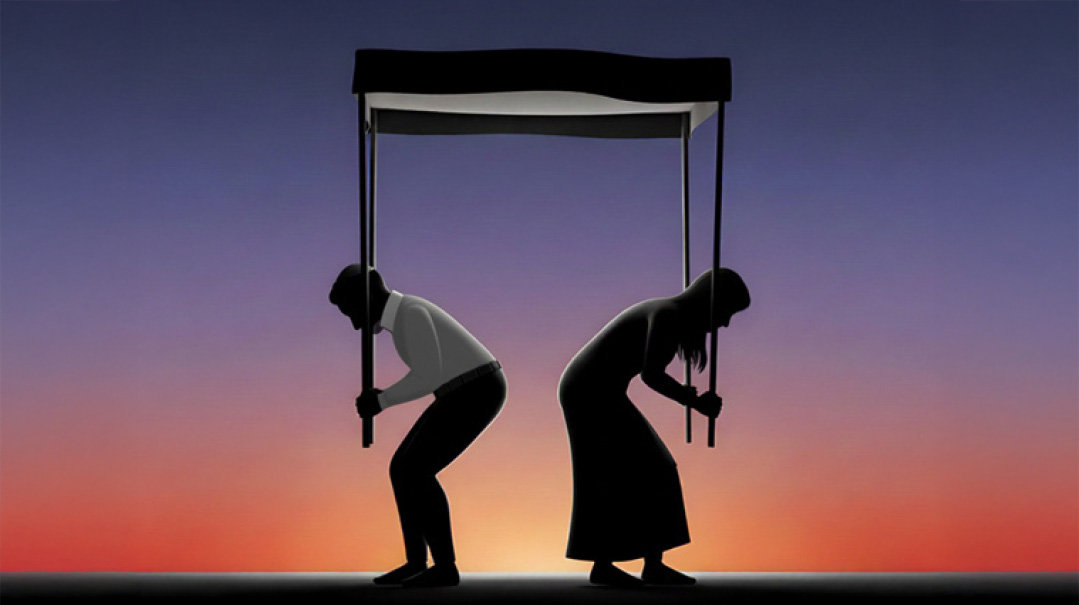Family by Family

The night our Father designated us His treasured children home by home, family by family

WE
come into this world as individuals, legs thrashing, voices wailing, charged with a mission no one else can fulfill.
We experienced revelation as a nation, when masses stood shoulder to shoulder under a desert mountain.
But we savored our first taste of liberation as families. Individual families huddled together in sunbaked homes, hardly daring to believe that we had just defied the law of the land, slaughtering then roasting the deity of the people who, just months before, had been our sadistic masters.
When we envision the families on that dramatic night, we see them bearing visible scars of the years of slavery. The fathers likely had missing limbs, skin lacerated by whips, eyes blinded by clubs. The mothers were bent and bowed from loads far heavier than a woman’s capacity, their skin dry and shriveled from hours laboring in the unforgiving heat.
The children, those small people with big, wondering eyes, followed their parents’ strict instructions to dip this new, unfamiliar food into bitter herbs, to finish all the meat while not marring the bones — sensing, as they chewed, an undeniable tension.
Did those little boys and girls know what it meant to laugh, to hope? How could they? They had been born into submission, locked in a country no one had ever succeeded in escaping.
Now they sat behind their blood-smeared doors, listening to the screams as a hidden Hand descended upon family after family, deciding the fate of each one. At some point they would realize their entire nation had been spared. But during those early hours when the plague rampaged through the land, the only thing they could know with certainty was that their own scarred family was safe.
A week later they would experience grand, sweeping salvation as a nation. But on this terrifying then hopeful night when they felt the Divine Hand, it was extended in a personal embrace of their own little family.
There’s something very public, very communal, about Pesach preparation. Groups form to bake matzos. Lines of shoppers snake from supermarket counters deep into the aisles, holding long lists and loaded carts. Anxious teens and hopeful mothers mob clothing boutiques. Recipes are passed from friends to relatives to workmates to neighborhood email groups. Against the hum of vacuum cleaners, honking minivans, and classic Pesach melodies, it seems the entire Jewish nation is sharing notes both subconsciously (how many cartons of eggs did they take?) and outright (so, which room are you up to?).
There’s that neighbor whose progress we can all track by the freshly laundered items she sets out to dry. Starting around Rosh Chodesh Adar, we see couch pillows, then talleisim, then freshly scrubbed dollies, all sunning in the bleach-scented air. Closer to the great Turning Over, it seems half the neighborhood children are eating their suppers on stoops, porches, or in the park. And on Erev Yom Tov, packs of little (and not so little) boys congregate around improvised bonfires, coaxing the last bits of chometz into the flames.
Then Yom Tov comes, Maariv is completed, and the boys in their new suits follow their fathers home. The doors close. And it’s just family, gathered for the most important lesson of the year.
For all the regal settings, the radiant crystal and deep purple wine, many of our tables are pockmarked by the scars of this very long exile. Some scars mirror those of our forefathers — missing limbs, battered bodies, empty places. Some are less apparent: wounds of the spirit that can’t be easily measured, but still hobble and handicap. But the mitzvah of the night is to sit with family, imperfect and flawed as our family units may be, and to experience mesorah not as an abstract concept but as an active process: for one generation to transmit to the next a crucial story. It’s not just the story of slaves who found freedom; it’s the story of slaves who found their identity.
Remember, slave-children don’t really belong to the people who birthed them. They are the property of their masters. A slave-child may carry his parents’ genes, but he is never fully theirs so long as he must carry his master’s load. Only a freeman can hope to chart a future for his child.
On the night our Maker claimed us as His firstborn among the nations, He made us free. Free to actualize our destiny, to realize our true selves — and to bequeath that identity to the next generation.
There are times we whisper this story in private, letting the message echo where only our own ears can hear it. There are times we trumpet this triumph standing shoulder to shoulder as a community. But on the night our Father designated us His treasured children home by home, family by family, it seems only right that we recount the miracle of our identity behind closed doors, around the family table, parent to child.
(Originally featured in Mishpacha, Issue 1057)
Oops! We could not locate your form.







